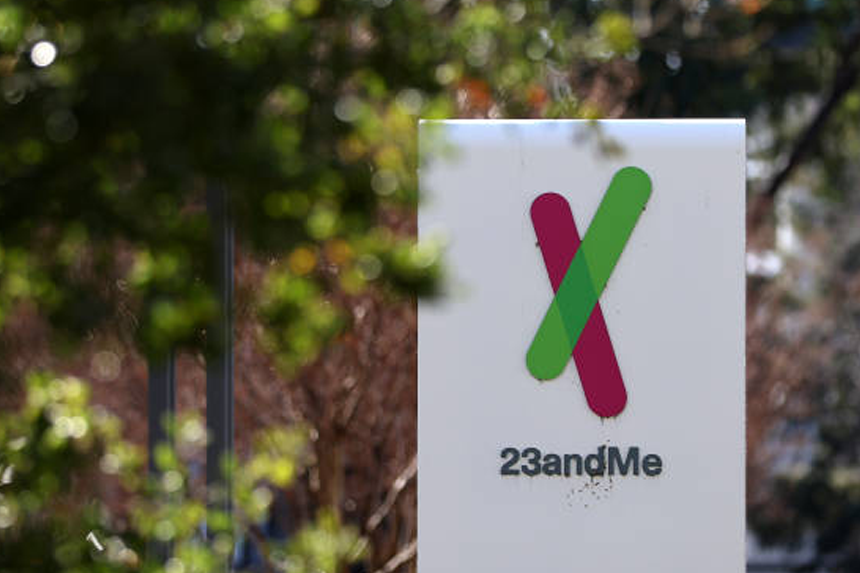Thousands of consumers trying to remove their genetic data in response to the 23andMe bankruptcy declaration have swamped the DNA-testing company’s computer systems. The traffic increase caused significant IT problems that prevented many users from accessing their accounts or completing the deletion process.
Although the firm says these problems have been fixed recently, consumers still struggle to protect their private data, including ancestry records, medical histories, and genetic information. Some customers said they tried to log into their accounts several times but couldn’t finish the login procedure because the firm received verification codes slowly. Others voiced concerns about the firm retaining their data, even after erasure.
What caused 23andMe’s Bankruptcy Filing?
Under Chapter 11, 23andMe’s bankruptcy protection was entered on Sunday, 23, allowing the business to sell its assets under a court-supervised process. Customers are worried about their genetic data possibly being included in the sale since the company plans an auction on May 14.
Years of financial difficulties, dwindling sales, and mounting data security issues preceded the bankruptcy filing. In 2023, the business suffered a severe data hack, compromising millions of consumer accounts. After this hack, 23andMe settled for $30 million, further taxing company finances. Built on monetizing genetic data through health insights and ancestry tracking, several industry observers feel the company’s business model may not be sustainable.
Danielle Landriscina, a 52-year-old Maryland customer, stated, “If 23andMe is going to be sold, then my data can be sold, from what I hear.” Initially joining the program in 2018 to get in touch with her father’s side of the family, she now fears possible information abuse. “What’s stopping something like a health insurance company from buying my data and then using it to determine if I get health insurance or how much I have to pay for it?” she said.
Although the company’s privacy statement claims 23andMe “would not willingly share your Personal Information” with insurance providers,” the future is unknown, mainly should new ownership take over.
Are Users Erasing Their Information?
Login problems and excessive wait times for customer assistance have many consumers claiming trouble removing their data. While some consumers battled two-factor authentication difficulties, others encountered error warnings when trying to delete their data.
Ms Landriscina related her aggravating login trouble on Tuesday morning. She was asked to be authenticated twice to confirm her identity, but she did not get a verification code until the evening when the code expired. High website traffic led the company’s online chat support to suggest she try again later. She tried many times before late Tuesday night but could not remove her account.
Another client, Pauline Long from Alabama, related a similar experience. “This has been a misery; I am now going to be more careful about doing anything online,” she said. She waited two hours to speak with a customer care worker before effectively deactivating her account, but she still questions whether her data has been deleted. “I worry that 23andMe will hang onto data,” she said.
23andMe claims that deleting an account permanently removes all linked data. Nonetheless, many consumers are still concerned about the destiny of their data, considering past data breaches and the continuous financial instability brought forth by 23andMe’s bankruptcy. Some users have hypothesized that backups or copies of their genetic data could still exist in some way, even if their accounts are erased.
What Do Authorities Suggest?
Because of the sensitivity of the data 23andMe has accumulated over the years, attorneys general from several U.S. states—including California, Arizona, South Carolina, and New York—have advised consumers to get their information removed from the company’s database.
“Every person will have a different appetite for risk and will value their own private information differently,” California Attorney General Rob Bonta underlined the need for user knowledge. It’s up to them what they do; nonetheless, I wanted to inform them about their right to erase.
On Friday, Bonta sent a consumer notice with a detailed walk-through guide to assist consumers in guarding their information. “This is exactly the situation when a reminder of your rights and protections is fitting,” he said. He said that consumers should also constantly be aware of what personal information they provide to businesses, particularly those that gather private data.
Is it possible to sell customer data using the bankruptcy procedure?
According to 23andMe, any buyer of the firm will have to follow current privacy rules and regulatory permissions. The company’s privacy policy does, however, state that user data may be “accessed, sold, or transferred as part of that transaction” should 23andMe be bankrupt or undergo mergers, acquisitions, reorganizations, or asset sales.
Professor Anya Prince of the University of Iowa College of Law pointed out that although a new business would initially have to abide by 23andMe’s privacy policy, the contract also permits future changes. “A new company would have to keep managing consumer data under the privacy policy,” she said. “But they might make occasional tweaks to it.”
Consumers who used to provide DNA samples to 23andMe can ask that their samples be destroyed. Those who signed up for the company’s research program will also lose personal data used in future studies. Still, there are questions regarding whether any information kept might finally be used under new ownership.
From this encounter, what have consumers learnt?
Some long-time users claim this scenario has changed their views on online privacy. Many people are increasingly reevaluating the dangers of handing personal data—especially biometric data—to big companies.
Georgia-born genealogist Michele Lewis, 62, said the deletion process was more straightforward this time than it had been months before when she was facing a waiting period. She said, “It was almost immediately deleted and much simpler.” She has lately lost faith in 23andMe, even though she has utilized it since 2008. “23andMe has not had problems before this.”
Millions of consumer accounts were stolen in a major data hack the company experienced in 2023. Later, it paid $30 million to settle a lawsuit over the breach. Some consumers have used this background to prove that 23andMe lacked the proper tools to manage private genetic information.
The ordeal has been eye-opening for Ms. Landriscina. She said, “If I had to do it all over again, I would not have done this.” “The advantage does not exceed what I believe to be the damage of having my DNA available and sold. It is alarming.
The destiny of 23andMe’s enormous genetic information is unknown as it advances through bankruptcy procedures. Consumers who trusted the corporation with their most private information now have to consider the possibility that their data might be included in a more significant business transaction. The circumstances remind me sharply of the dangers of posting private information online.








